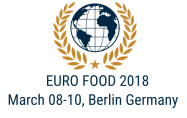
Adam Tarko
Constantine the Philosopher University in Nitra, Slovakia
Title: Can xylene and chia (Salvia hispanica L.) seed extract directly affect basic ovarian cell functions?
Biography
Biography: Adam Tarko
Abstract
Exposure to xylene is associated with the dysfunction of mammalian female reproduction. Some medical plants, in particular Salvia hispanica L. (chia), promote reproductive processes, but it is unknown, whether they can prevent negative influence of environmental contaminant on reproductive processes. In this in vitro study we elucidated the effects of xylene, chia, and xylene/chia combination on basic bovine ovarian granulosa cell functions (proliferation, apoptosis, and hormone release). Proliferation and apoptosis were assessed via immunocytochemistry by evaluation of PCNA and BAX accumulation. The release of progesterone, testosterone and insulin-like growth factor IGF-I was analyzed by RIA. It was observed, thatxylene when given alone stimulated proliferation but not apoptosis. Furthermore, xylene inhibited release of progesterone and testosterone but did not change IGF-I release. Chia seed extract inhibited proliferation, apoptosis and the release of IGF-1, progesterone and testosterone. Moreover, chia seed extract suppressed the stimulatory effect of xylene on proliferation but induced pro-apoptotic effect of xylene. The obtained results demonstrate a direct effect of both xylene and chia seed extract on basic bovine ovarian cell functions - proliferation, apoptosis and secretory activity. Moreover, it is the first demonstration of the ability of chia to suppress xylene action on ovarian cell proliferation. On the other hand, chia prevented only one xylene effect among five analyzed ones suggesting that chia could not be potentially useful for natural prevention of all negative effects of xylene on reproduction.

